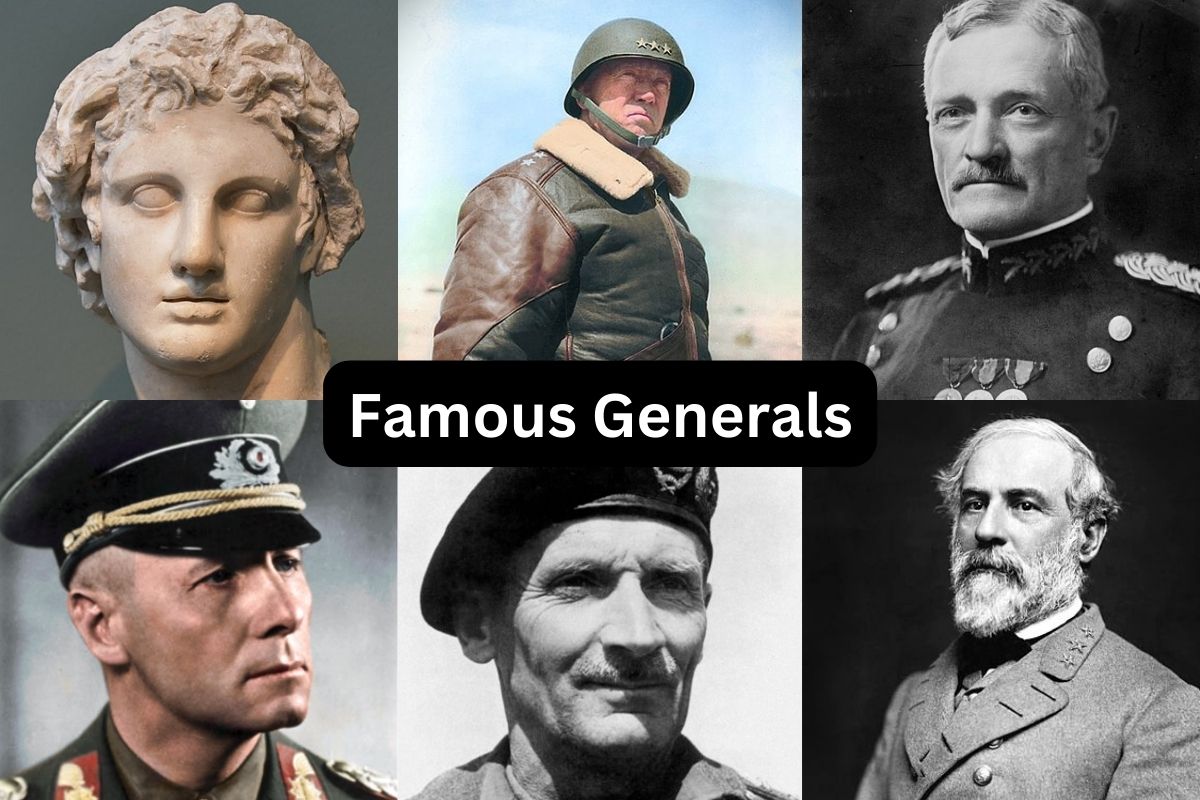The most famous generals throughout history are leaders who have made a significant impact on military history through their strategic and tactical skills, their achievements on the battlefield, and their leadership abilities.
These figures have inspired awe and admiration for centuries, their names and deeds often becoming the stuff of legends.
They have played a crucial role in shaping the course of wars, battles, and entire civilizations.
From the ancient world to the modern era, these leaders have commanded armies, conquered territories, defended their homelands, and influenced the course of history.
Some of the most famous generals include:
- Alexander the Great
- George S. Patton
- Stonewall Jackson
- Robert E. Lee
- Erwin Rommel
Each of these generals achieved greatness in their own unique ways, leaving a lasting impact on history that is still felt today.
What is a General?
A general is a high-ranking military officer who is typically responsible for the command of a large body of troops. In most military forces, the rank of general is considered the highest achievable rank, above all other officers.
Generals are responsible for planning and directing military operations, setting objectives, and making strategic decisions. They may also be involved in the selection and training of troops, as well as the acquisition and deployment of military equipment and resources.
Generals may be appointed by a government or elected by their peers in the military, and may hold various titles depending on their rank and responsibilities, such as General of the Army, General of the Air Force, or General of the Marine Corps.
In addition to their military duties, generals may also serve as advisors to political leaders or government officials on matters related to national security and defense.
Famous Generals
1. Alexander the Great

Alexander the Great was a king of Macedon who lived from 356 BC to 323 BC. He is widely considered as one of the greatest military commanders in history, renowned for his tactical and strategic abilities, his military campaigns, and his conquest of much of the known world.
Alexander was educated by the philosopher Aristotle and became king of Macedon at the age of 20, following the assassination of his father, King Philip II.
He then embarked on a series of military campaigns that lasted more than a decade, conquering territories from Greece to Egypt, Persia, and India. His empire stretched from the Balkans to modern-day Pakistan and India.
Alexander was known for his bold and decisive leadership, his courage on the battlefield, and his ability to inspire his troops. He was also a skilled diplomat and administrator, working to blend the cultures of conquered lands with that of his own.
Alexander died at the age of 32, likely from illness or poisoning, and his empire was divided among his generals. He is remembered as a military genius and a cultural icon, whose legacy continues to influence politics, culture, and society to this day.
2. George S. Patton
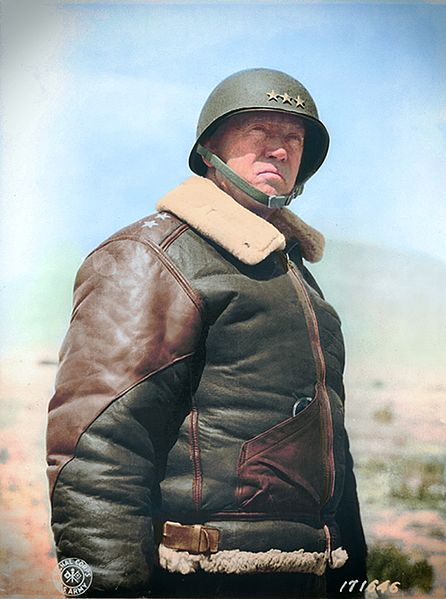
George S. Patton was a famous American general who lived from 1885 to 1945. He is best known for his leadership of the U.S. Third Army during World War II, where he played a key role in the Allies’ victory in the European Theater.
Patton was a colorful and controversial figure, known for his aggressive and outspoken personality, his tactical genius, and his unwavering determination to win at all costs.
He was a skilled tank commander and his innovative use of armored forces helped to break through enemy lines during the Normandy Campaign and the Battle of the Bulge.
Patton was also known for his leadership style, which emphasized discipline, morale, and personal bravery. He led his troops from the front lines, inspiring them with his courage and determination. His speeches and quotes, such as “lead me, follow me, or get out of my way,” have become legendary.
After the war, Patton served briefly as military governor of Bavaria before his untimely death in 1945, following a car accident. He remains one of the most celebrated and controversial figures in American military history, known for his boldness, his determination, and his iconic leadership style.
3. Stonewall Jackson
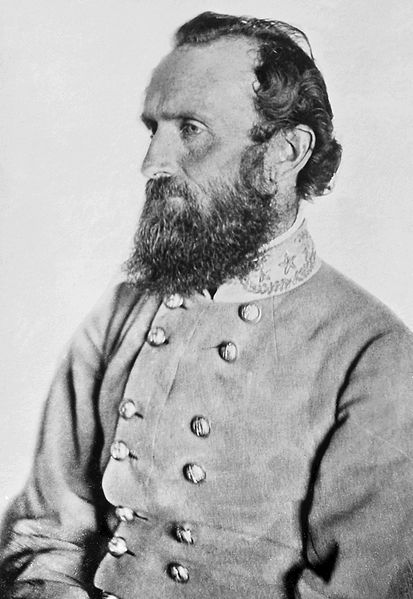
Stonewall Jackson was a Confederate general during the American Civil War who lived from 1824 to 1863. He was born in Virginia and grew up to become a professor at the Virginia Military Institute before the outbreak of the war.
Jackson earned his nickname “Stonewall” at the First Battle of Bull Run in 1861, where he and his troops held their position against a Union assault. He went on to play a key role in several major battles of the Civil War, including the Battle of Antietam and the Battle of Fredericksburg.
Jackson was known for his bold and aggressive tactics, his ability to inspire his troops, and his tactical brilliance on the battlefield. He was also deeply religious and believed that God had a plan for his life and the outcome of the war.
Tragically, Jackson was accidentally shot by his own troops at the Battle of Chancellorsville in May 1863 and died several days later from complications of his injuries. His death was a significant blow to the Confederate cause, as he was widely regarded as one of their most talented and effective generals.
Despite his short career, Jackson remains a revered figure in American military history and is celebrated for his tactical genius, his courage, and his unwavering commitment to his cause.
4. Robert E. Lee
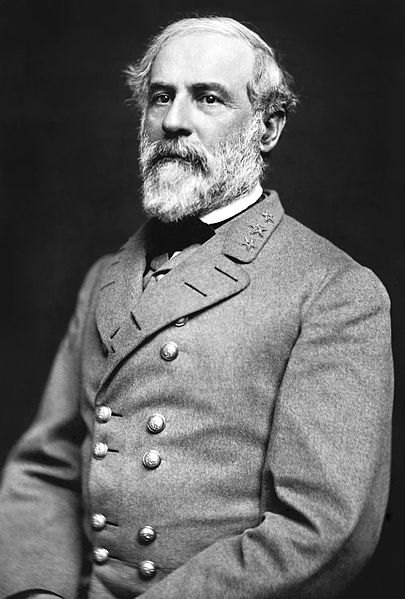
Robert E. Lee was a Confederate general during the American Civil War who lived from 1807 to 1870. Born in Virginia, Lee graduated from West Point in 1829 and served in the United States Army for over 30 years before the outbreak of the Civil War.
Lee is best known for his leadership of the Confederate Army of Northern Virginia during the Civil War, where he won a number of key battles and earned a reputation as one of the most talented military commanders of his time.
He is widely regarded as a brilliant tactician and a skilled leader, able to inspire his troops and adapt to changing circumstances on the battlefield.
Despite his military successes, Lee’s legacy has been controversial due to his role in the Confederacy, which fought to preserve slavery and the plantation economy of the South.
Lee himself was a slave owner and, while he opposed secession and initially hoped for a peaceful resolution to the conflict, ultimately sided with the Confederacy and fought for its cause.
After the war, Lee became a symbol of the Lost Cause, a romanticized view of the Confederacy that emphasized states’ rights and the valor of Confederate soldiers. Today, Lee’s legacy remains the subject of debate and controversy, with some viewing him as a hero and others as a symbol of America’s troubled past with race and slavery.
5. Erwin Rommel
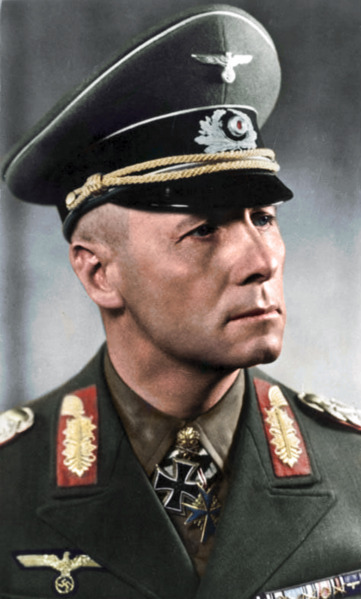
Erwin Rommel, also known as the “Desert Fox,” was a German general during World War II who lived from 1891 to 1944. He is best known for his leadership of the Afrika Korps in North Africa, where he distinguished himself as a skilled tactician and a master of desert warfare.
Rommel rose to prominence during the early years of the war, earning a reputation as a daring and innovative commander who was able to achieve surprising victories against Allied forces. His tactical genius and ability to outmaneuver his opponents made him a feared opponent, and he was widely respected by both his own troops and his enemies.
Despite his military success, Rommel was ultimately on the losing side of the war and was implicated in a plot to assassinate Adolf Hitler. Fearing arrest and a public trial, he committed suicide in 1944.
Rommel is remembered as one of the most talented and respected military commanders of the war, known for his leadership skills, his tactical genius, and his unwavering commitment to his troops.
While his legacy has been overshadowed by his association with the Nazi regime, he remains a celebrated figure in military history and a symbol of the complexities and moral ambiguities of war.
6. John J. Pershing
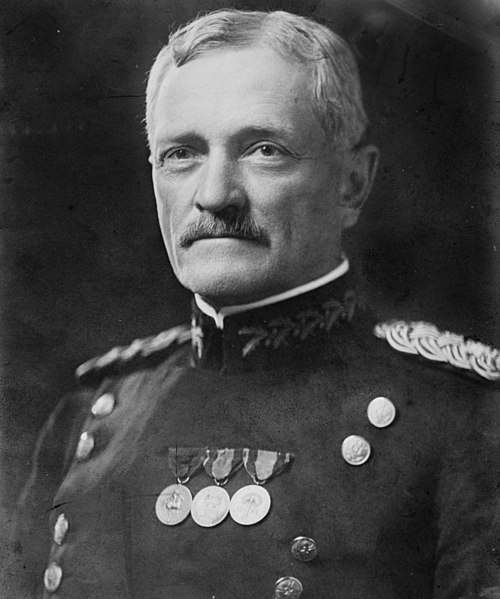
John J. Pershing was an American general who lived from 1860 to 1948. He served as commander-in-chief of the American Expeditionary Forces during World War I and is widely regarded as one of the most effective American military leaders of the 20th century.
Pershing was known for his tactical and strategic brilliance, his unwavering commitment to victory, and his skill in training and leading large numbers of troops.
He was responsible for organizing and deploying over two million American soldiers to Europe during World War I, where they played a decisive role in the final defeat of Germany.
After the war, Pershing continued to serve in the military, holding various leadership positions and advocating for the modernization and reform of the American military. He also served as a mentor to many of the military leaders who would go on to play key roles in World War II.
Pershing’s legacy as a military leader is widely celebrated, with many viewing him as one of the most important figures in American military history. He is remembered for his bravery, his tactical brilliance, and his unwavering commitment to his troops and to the cause of freedom.
7. Douglas MacArthur
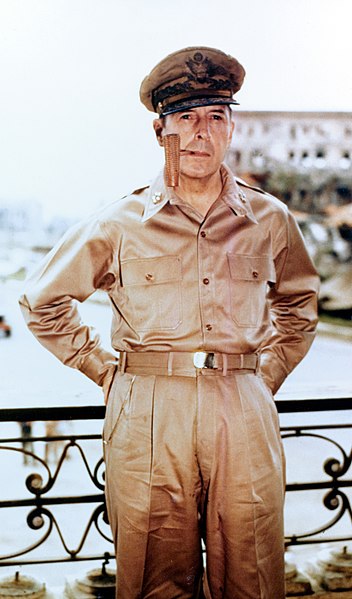
Douglas MacArthur was an American general who lived from 1880 to 1964. He was one of the most prominent American military leaders of the 20th century, serving in World War I, World War II, and the Korean War.
MacArthur is best known for his leadership of Allied forces in the Pacific during World War II, where he played a key role in the liberation of the Philippines and the defeat of Japan. He also served as Supreme Commander of the Allied Powers during the occupation of Japan after the war.
During the Korean War, MacArthur served as Commander-in-Chief of the United Nations Command and oversaw the successful landing at Inchon, but was later relieved of his command due to his public disagreements with President Truman over military strategy.
MacArthur was known for his tactical and strategic brilliance, his boldness and willingness to take risks, and his belief in the importance of air power and amphibious operations.
He was also known for his colorful personality, his flamboyant uniforms, and his public speeches, including his famous “Old Soldiers Never Die” speech.
Despite his controversial reputation and his disagreements with political leaders, MacArthur remains a celebrated figure in American military history, known for his leadership, his courage, and his unwavering commitment to the cause of freedom.
8. Ulysses S. Grant
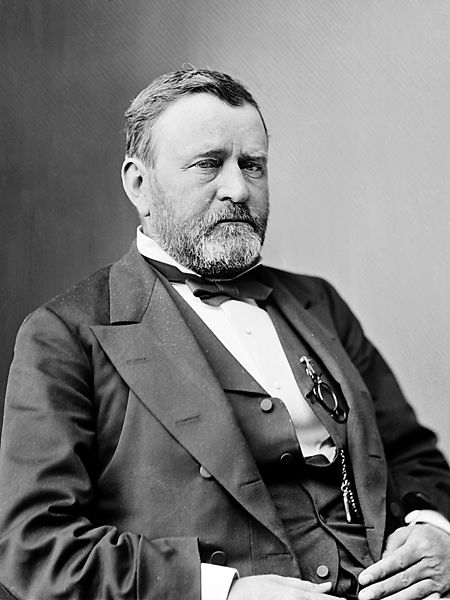
Ulysses S. Grant was an American general and the 18th President of the United States who lived from 1822 to 1885. He is best known for his role as the commander of Union forces during the American Civil War, where he played a key role in the Union’s victory over the Confederacy.
Grant was known for his strategic and tactical brilliance, his courage under fire, and his unwavering commitment to the Union cause.
He won a number of decisive battles during the war, including the Battle of Shiloh and the Vicksburg Campaign, and is credited with devising the strategy that led to the defeat of Confederate General Robert E. Lee at Appomattox Court House.
After the war, Grant served as a two-term President, overseeing the reconstruction of the South and working to promote civil rights for African Americans. He was also a prolific writer and completed a highly acclaimed memoir before his death.
Grant’s legacy as a military leader and a President is widely celebrated, with many viewing him as one of the most important figures in American history. He is remembered for his leadership, his courage, and his commitment to justice and equality, and his contributions to the Union cause and the reconstruction of the South are still felt today.
9. Napoleon Bonaparte
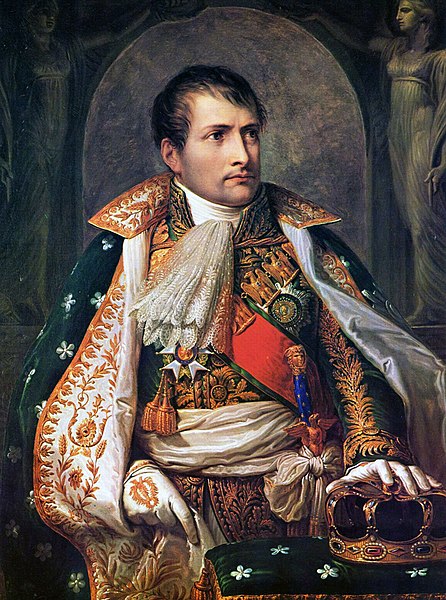
Napoleon Bonaparte was a French military and political leader who lived from 1769 to 1821. He rose to prominence during the French Revolution, eventually becoming the Emperor of France and one of the most powerful figures in European history.
Napoleon is widely regarded as one of the greatest military commanders in history, renowned for his tactical and strategic brilliance, his military campaigns, and his conquest of much of Europe.
He won a number of decisive battles during his career, including the Battle of Austerlitz and the Battle of Borodino, and his innovative tactics and use of artillery helped to revolutionize modern warfare.
In addition to his military accomplishments, Napoleon is also known for his political and social reforms, including the Napoleonic Code, which established legal equality and protected property rights. He also introduced a number of educational and administrative reforms, helping to modernize and centralize the French government.
Despite his many achievements, Napoleon’s legacy is complex and controversial. He was responsible for a number of brutal military campaigns, and his imperial ambitions contributed to the deaths of millions of people.
His eventual defeat and exile to the island of Saint Helena is seen by some as a cautionary tale about the dangers of unchecked power and ambition.
10. Julius Caesar

Julius Caesar was a Roman statesman and military leader who lived from 100 BC to 44 BC. He is widely regarded as one of the greatest military commanders in history and played a key role in the transformation of the Roman Republic into the Roman Empire.
Caesar was known for his tactical and strategic brilliance, his military campaigns, and his political savvy. He conquered much of Gaul (modern-day France) and expanded the Roman Empire to its greatest extent, including the conquest of Britain.
He also played a key role in the transformation of the Roman Republic into a centralized autocratic state, and his reforms helped to lay the foundations of the Roman Empire.
Despite his military and political successes, Caesar’s reign was not without controversy. He was eventually assassinated by political rivals who feared his growing power and ambition, and his death led to a period of political instability and civil war in Rome.
Caesar’s legacy is complex and controversial. He is remembered as a military genius and a cultural icon, whose name has become synonymous with power, ambition, and leadership.
He is also remembered for his contributions to the Roman Empire, including his reforms and his role in the transformation of Rome from a republic to an autocratic state. At the same time, his legacy is also associated with the excesses of imperial power and the dangers of unchecked ambition.
11. Genghis Khan
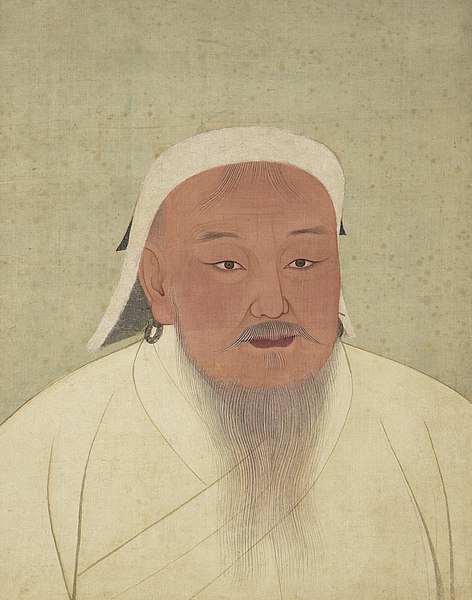
Genghis Khan, born Temujin, was a Mongol warrior and founder of the Mongol Empire who lived from 1162 to 1227. He is considered one of the greatest military commanders in history and his empire eventually spanned from Eastern Europe to Central Asia.
Genghis Khan was known for his tactical and strategic brilliance, his military campaigns, and his ability to unite the various nomadic tribes of Mongolia under his leadership. He was a master of cavalry warfare, and his armies were able to outmaneuver and defeat much larger and better-equipped armies.
Under Genghis Khan’s leadership, the Mongol Empire became the largest contiguous empire in history, and his military tactics and strategies influenced warfare for centuries to come. In addition to his military accomplishments, Genghis Khan is also remembered for his political and social reforms, which helped to establish a unified Mongol state.
Despite his military and political successes, Genghis Khan’s legacy is also associated with the brutality and violence of the Mongol conquests, which resulted in the deaths of millions of people. Nonetheless, he remains a celebrated and controversial figure in history, known for his military genius and his impact on the course of world events.
12. Scipio Africanus
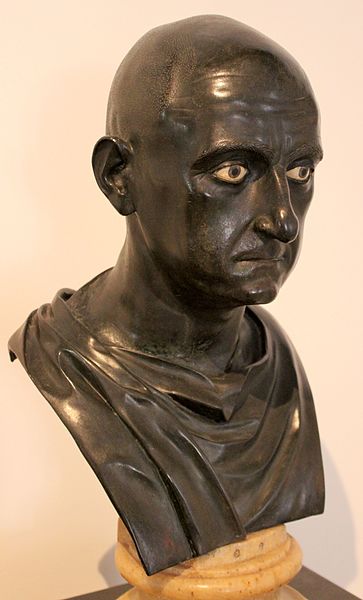
Scipio Africanus was known for his tactical and strategic brilliance, his military campaigns, and his ability to adapt to changing circumstances on the battlefield. He won a number of key battles during the Second Punic War, including the Battle of Zama, which marked the final defeat of Hannibal and the Carthaginians.
In addition to his military accomplishments, Scipio Africanus was also known for his political and diplomatic skills. He served as consul of Rome and was instrumental in shaping Roman foreign policy, helping to expand the Roman Empire and secure its position as a dominant power in the Mediterranean.
Scipio Africanus’s legacy is still felt today, with many historians viewing him as one of the greatest military commanders in history. He is remembered for his tactical genius, his leadership skills, and his contributions to the growth and development of the Roman Empire.
13. Dwight D. Eisenhower
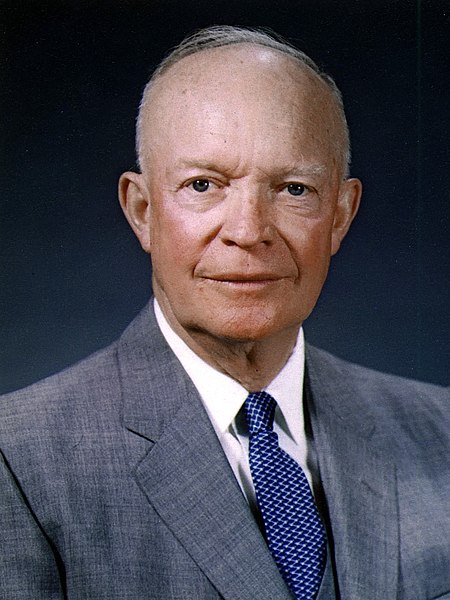
Dwight D. Eisenhower was an American general and statesman who lived from 1890 to 1969. He served as the Supreme Commander of the Allied Forces in Europe during World War II and as the 34th President of the United States.
Eisenhower is best known for his leadership during World War II, where he played a key role in the planning and execution of the D-Day invasion of Normandy and the eventual defeat of Nazi Germany. His strategic and organizational skills helped to coordinate the efforts of Allied forces in Europe and played a crucial role in the eventual Allied victory.
After the war, Eisenhower served as the President of Columbia University and as Supreme Commander of NATO before being elected President of the United States in 1952.
He served two terms as President, overseeing the growth and development of the American economy, the expansion of civil rights, and the early stages of the Cold War.
Eisenhower’s legacy is widely celebrated, with many viewing him as one of the most important figures in American history. He is remembered for his leadership during World War II, his commitment to democracy and freedom, and his contributions to American political and social life.
14. Bernard Montgomery
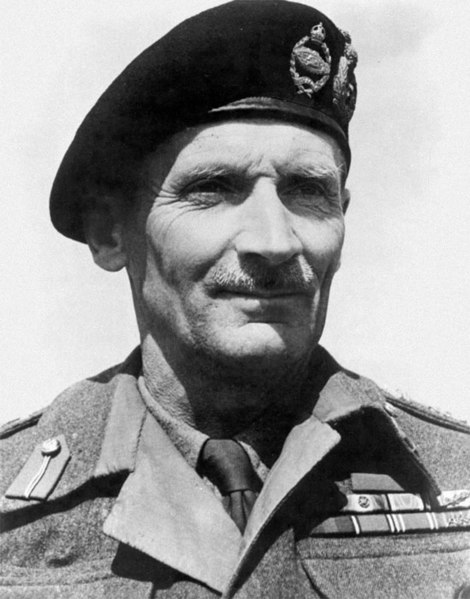
Bernard Montgomery, also known as “Monty,” was a British general who lived from 1887 to 1976. He is best known for his leadership during World War II, where he played a key role in the Allied victory in North Africa and the D-Day invasion of Normandy.
Montgomery was known for his tactical and strategic brilliance, his ability to inspire his troops, and his meticulous planning and attention to detail. He won a number of decisive battles during the war, including the Battle of El Alamein and the Battle of Normandy, and his leadership helped to turn the tide of the war in favor of the Allies.
After the war, Montgomery served as Chief of the Imperial General Staff and was later made a Field Marshal. He was also active in politics and played a key role in the reorganization of the British Army.
Montgomery’s legacy is widely celebrated, with many viewing him as one of the most important military commanders of the 20th century. He is remembered for his leadership during World War II, his commitment to victory, and his contributions to the modernization and reform of the British military.
15. Attila the Hun
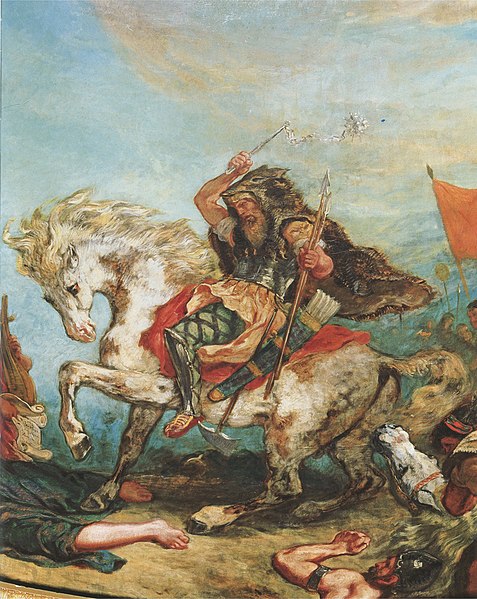
Attila the Hun was a warrior and ruler of the Huns who lived from approximately 406 to 453 AD. He is best known for his military campaigns and his role in the decline of the Roman Empire.
Attila was known for his strategic and tactical brilliance, his military campaigns, and his ability to unite the various tribes of the Huns under his leadership. He conquered much of Central and Eastern Europe, including parts of the Roman Empire, and his armies were feared for their brutality and ferocity.
Also Read: Attila the Hun Facts
Despite his military success, Attila’s reign was not without controversy. He was responsible for a number of brutal military campaigns, and his invasion of the Western Roman Empire in 451 AD contributed to the decline of the empire.
Attila’s legacy is complex and controversial, with many viewing him as a barbarian and a brutal conqueror. At the same time, his military genius and his impact on the course of world events cannot be denied, and he remains a celebrated and controversial figure in history.
